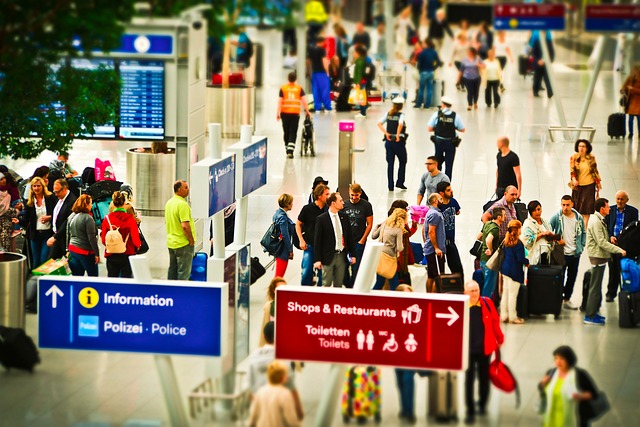
Beijing, China – In a significant move aimed at revitalizing its tourism sector and boosting foreign consumption, China has announced a comprehensive overhaul of its tax refund policy for international visitors. The new measures, jointly unveiled by the Ministry of Commerce and several other key government bodies, seek to make shopping in China more appealing and convenient for tourists, with the anticipation of driving economic growth and showcasing the nation's diverse offerings.
The "Notice on Optimizing the Departure Tax Refund System and Expanding Foreign Consumption," released on April 26th, outlines a series of enhancements designed to lower the barriers for foreign tourists to claim Value Added Tax (VAT) refunds on their purchases. The most notable change is the substantial reduction in the minimum spending threshold required to qualify for a refund. Previously set at 500 yuan (approximately $69 USD or ₩100,000), this limit has been slashed to just 200 yuan (approximately $28 USD or ₩40,000). This adjustment is expected to benefit a wider range of tourists making smaller purchases, encouraging more spontaneous and varied spending.
Furthermore, the policy introduces a doubling of the maximum amount that can be refunded in cash. The previous ceiling of 10,000 yuan (approximately $1,380 USD or ₩2 million) has been raised to 20,000 yuan (approximately $2,760 USD or ₩4 million). This increase caters to tourists making more significant purchases, particularly of higher-value items such as jewelry, electronics, and traditional Chinese crafts.
The initiative is a collaborative effort involving several high-level government agencies, including the Ministry of Finance, the Ministry of Culture and Tourism, the General Administration of Customs, the State Taxation Administration, and the Civil Aviation Administration of China. This inter-ministerial cooperation underscores the strategic importance of this policy in the broader context of China's economic and tourism development.
Speaking on the new measures, Vice Minister of Commerce Sheng Qiuping highlighted the dual objectives of the policy. "This policy will encourage more foreigners to shop and travel in China," he stated, emphasizing the potential for increased tourist footfall and spending. He further added that the initiative would play a crucial role in "promoting China's traditional products and new Chinese trends to overseas markets," effectively leveraging tourism as a channel for cultural and economic exchange.
The move comes at a time when China is actively seeking to attract more international visitors following the disruptions caused by the global pandemic. By making shopping more financially attractive, the government hopes to stimulate economic activity within the retail and tourism sectors, supporting local businesses and creating employment opportunities.
Industry analysts believe that the enhanced tax refund scheme has the potential to significantly boost foreign tourist spending. The lower minimum threshold makes the refund accessible for everyday purchases, while the higher cash refund limit incentivizes the purchase of more expensive goods. This dual approach targets a broader spectrum of tourist spending habits.
Moreover, the policy is expected to enhance China's image as a welcoming and tourist-friendly destination. By simplifying and improving the tax refund process, China aims to provide a more seamless and positive experience for international visitors, encouraging repeat visits and positive word-of-mouth promotion.
The expansion of tax-refund eligible stores and items, along with improvements in service levels – details of which are expected to be further clarified in subsequent announcements – will further contribute to the overall appeal of shopping in China. Tourists will likely have more options for claiming refunds, and streamlined procedures will reduce inconvenience and delays.
This strategic adjustment to the tax refund system reflects China's commitment to leveraging its vast cultural and economic resources to attract global tourism. By making it more rewarding for foreigners to spend their money in China, the government aims to inject vitality into its economy and showcase the dynamism and diversity of Chinese products and culture on an international stage. The impact of these changes on tourist numbers and spending will be closely monitored by both domestic and international stakeholders in the coming months.
[Copyright (c) Global Economic Times. All Rights Reserved.]




























